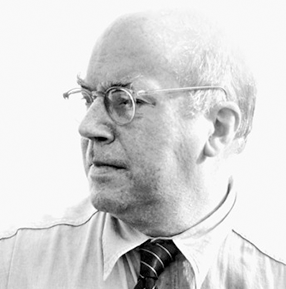Senlin: A Biography (Part I, Section II)
It is morning, Senlin says, and in the morning
When the light drips through the shutters like the dew,
I arise, I face the sunrise,
And do the things my fathers learned to do.
Stars in the purple dusk above the rooftops
Pale in a saffron mist and seem to die,
And I myself on a swiftly tilting planet
Stand before a glass and tie my tie.
Vine leaves tap my window,
Dew-drops sing to the garden stones,
The robin chirps in the chinaberry tree
Repeating three clear tones.
It is morning. I stand by the mirror
And tie my tie once more.
While waves far off in a pale rose twilight
Crash on a white sand shore.
I stand by a mirror and comb my hair:
How small and white my face!—
The green earth tilts through a sphere of air
And bathes in a flame of space.
There are houses hanging above the stars
And stars hung under a sea . . .
And a sun far off in a shell of silence
Dapples my walls for me . . .
It is morning, Senlin says, and in the morning
Should I not pause in the light to remember god?
Upright and firm I stand on a star unstable,
He is immense and lonely as a cloud.
I will dedicate this moment before my mirror
To him alone, for him I will comb my hair.
Accept these humble offerings, cloud of silence!
I will think of you as I descend the stair.
Vine leaves tap my window,
The snail-track shines on the stones,
Dew-drops flash from the chinaberry tree
Repeating two clear tones.
It is morning, I awake from a bed of silence,
Shining I rise from the starless waters of sleep.
The walls are about me still as in the evening,
I am the same, and the same name still I keep.
The earth revolves with me, yet makes no motion,
The stars pale silently in a coral sky.
In a whistling void I stand before my mirror,
Unconcerned, and tie my tie.
There are horses neighing on far-off hills
Tossing their long white manes,
And mountains flash in the rose-white dusk,
Their shoulders black with rains . . .
It is morning. I stand by the mirror
And surprise my soul once more;
The blue air rushes above my ceiling,
There are suns beneath my floor . . .
. . . It is morning, Senlin says, I ascend from darkness
And depart on the winds of space for I know not where,
My watch is wound, a key is in my pocket,
And the sky is darkened as I descend the stair.
There are shadows across the windows, clouds in heaven,
And a god among the stars; and I will go
Thinking of him as I might think of daybreak
And humming a tune I know . . .
Vine-leaves tap at the window,
Dew-drops sing to the garden stones,
The robin chirps in the chinaberry tree
Repeating three clear tones.
This poem is in the public domain. Published in Poem-a-Day on August 5, 2023, by the Academy of American Poets.
Conrad Aiken’s multipart poem “Senlin: A Biography” appears in The Charnel Rose, Senlin: A Biography, and Other Poems (The Four Seas Company, 1918). In a preface to the poem included with Aiken’s Collected Poems (Oxford University Press, 1953), Aiken writes, “Senlin [. . .] means literally the ‘little old man’ that each of us must become [. . .]. And the poem is simply an extension and analysis of that perennially fascinating problem of personal identity which perplexes each of us all his life [. . .].” Frederick J. Hoffman, a former professor of modern literature at the University of California, Riverside, in a titular study of Aiken’s work published in 1962 by the University of Indiana Press, writes of the poem that “[t]he sobering conclusion is that Senlin is all of us, that we are Senlin, the consciousnesses of all merge, and the comprehension of the universe is a joint progress. But can we not say that we have created Senlin or that Senlin has created his god, whom he imagines in postures and as having sensations similar to his? The poem ends with this reflection.”

